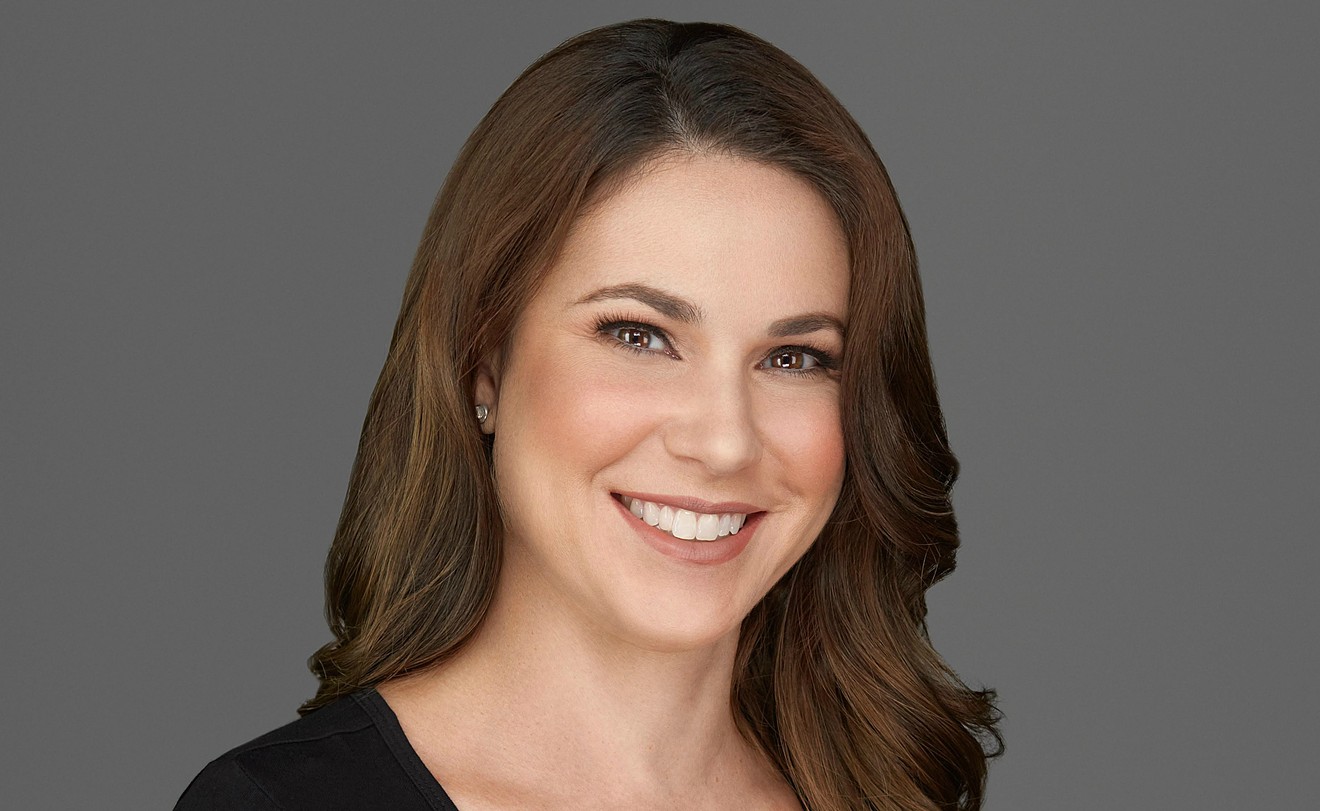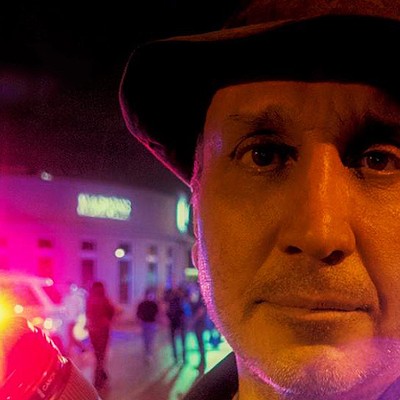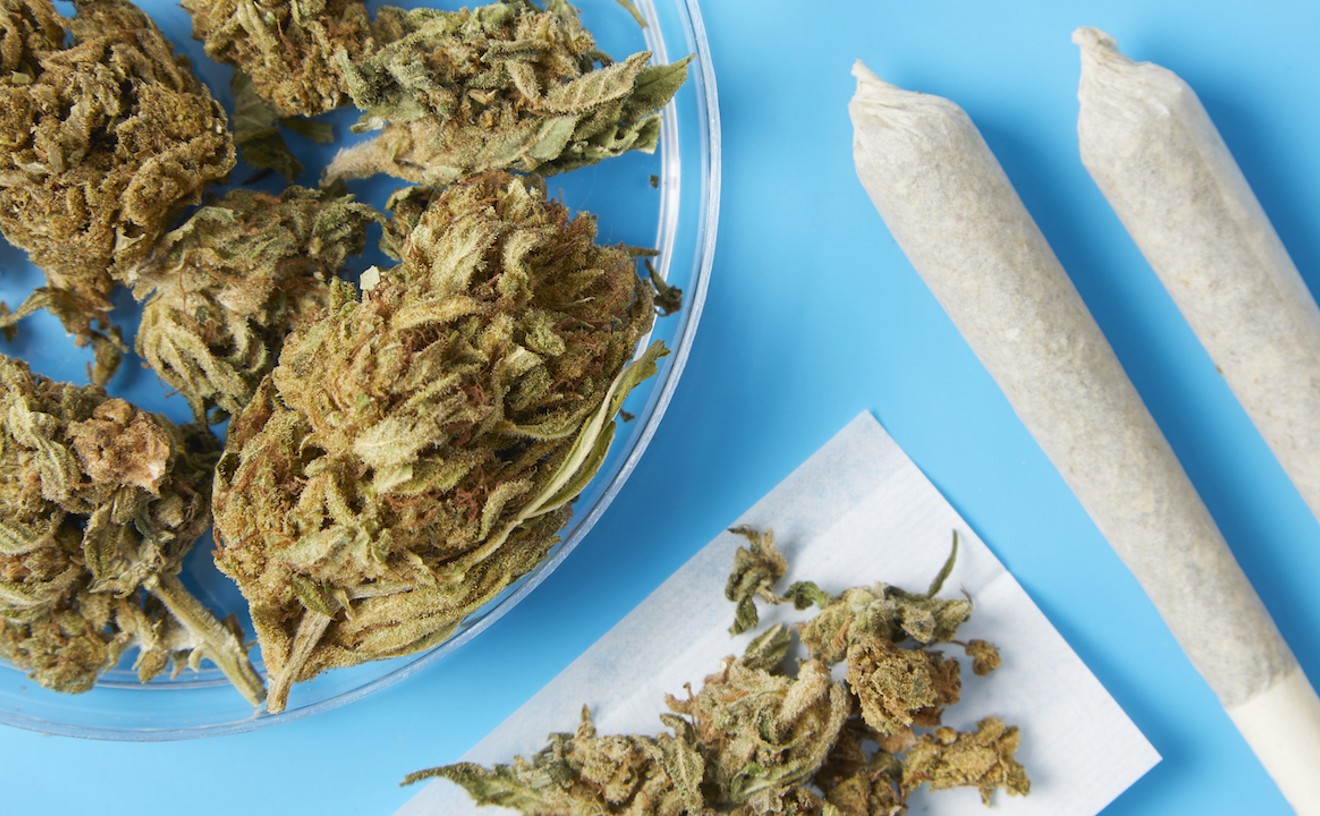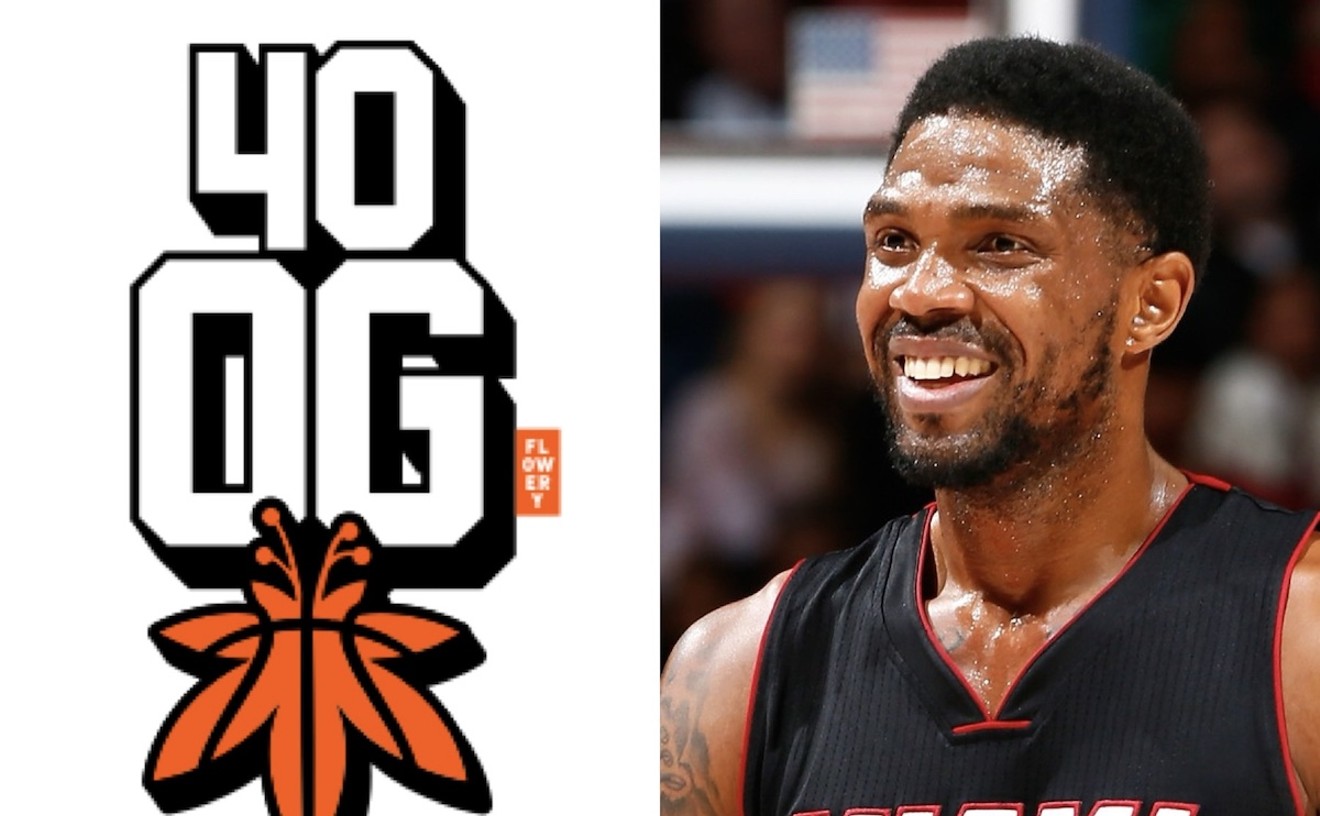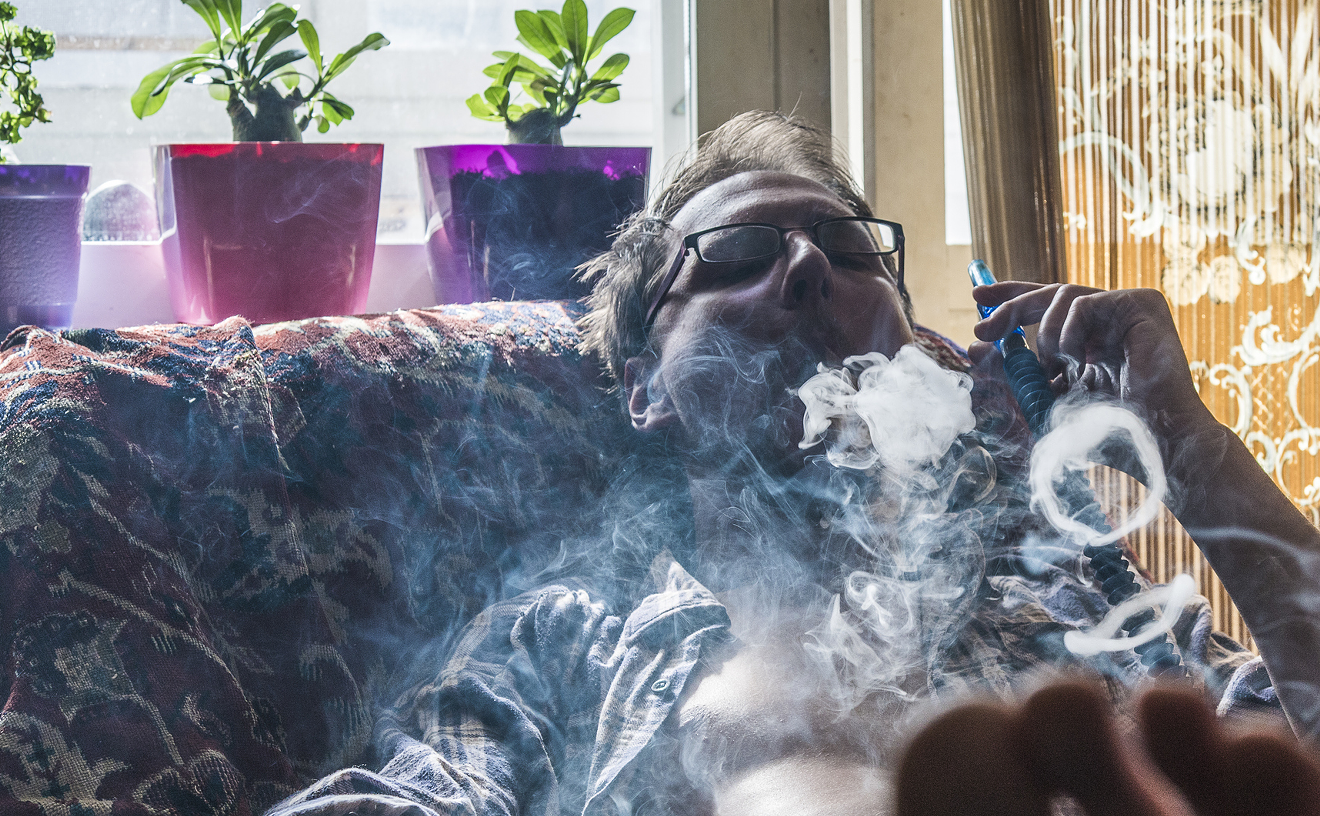The 40-year-old vice chair of the Libertarian Party of Miami-Dade had multiple polyps and cysts growing on both lobes of her thyroid, which she says made her look as if she had an Adam's apple. Her endocrinologist told her there was nothing to do but remove it.
Desperate for a solution, she visited a holistic doctor for the first time who suggested she try marijuana, which she had smoked once or twice in her life.
The idea of being legally allowed to buy pot in a retail setting appealed to her, so she visited a licensed medical marijuana doctor. The physician wrote her a recommendation for cannabis to treat her thyroid as well as arthritis and PTSD from a prior abusive marriage.
That recommendation allowed Bueno to visit a state-licensed marijuana dispensary to purchase the cannabis vape cartridges that she says reduced her arthritis pain enough to ease her need for pharmaceuticals. Her PTSD became more manageable. The polyps and cysts on her thyroid even began to shrink, she says.
Her endocrinologist expressed disapproval of the marijuana, claiming she would wind up with breast cancer if she continued to use it. He refused to acknowledge her improvement.
She continued work as a real-estate broker, but the five-foot, 100-pound woman often found herself alone showing homes to complete strangers. So she decided to obtain a concealed weapons permit and purchase a gun. “I didn’t feel safe because realtors are targeted all the time,” she says. “It can be very dangerous.”
But when she looked into it, she learned the medical marijuana permit might prohibit the purchase from a local gun store. “I was told I could not have both,” she said after speaking to various people, including lawyers. “I was told I would have to choose between cannabis and owning a gun, so I allowed my medical marijuana card to expire to buy the gun.”
Bueno is one of countless medical marijuana patients throughout the United States discovering their Second Amendment rights are not as absolute as they believed.
A medical marijuana card may protect you from a misdemeanor pot arrest at the state level, but it flags gun buyers as unlawful users of a controlled substance at the federal level through their responses on the Firearms Transaction Record, also known as Form 4473, which under federal law must be filled out before the purchase can take place.
The form asks,“Are you an unlawful user of, or addicted to, marijuana or any depressant, stimulant, or any other controlled substance?” Despite the fact that medical marijuana is legal in 33 states and the District of Columbia, the feds in January 2017 added in bold: “Warning: The use or possession of marijuana remains unlawful under federal law regardless if it has been legalized or decriminalized for medicinal or recreational purposes in the state where you reside.”
Answering yes to the question can result in an automatic denial of your right to purchase a gun from a licensed dealer.
Several lawsuits have been filed in recent years alleging the limitation violates the Second Amendment. In 2016, the U.S. Ninth Circuit Court of Appeals upheld the federal ban, ruling that any argument or evidence that medical marijuana cardholders are less likely to commit crimes is "not sufficient to overcome Congress’s reasonable conclusion that the use of such drugs raises the risk of irrational or unpredictable behavior with which gun use should not be associated.”
That ruling applies to the nine Western states under the court’s jurisdiction, including California, Hawaii, Washington, and Oregon.
Also, some police departments in Pennsylvania, Illinois, and Hawaii have taken it upon themselves to enforce federal law over state law by informing medical marijuana patients they must either turn in or dispose of their guns. Though there was some retreat after gun owners complained, the Pennsylvania State Police and the Honolulu Police Department have continued oversight and denied permits to medical marijuana patients.
In Florida, which has the highest number of concealed weapons permit-holders in the country and more than 200,000 medical marijuana patients, the issue has particular resonance.
“The most common objection heard in our clinic is ‘If I become a patient, I will have to give up my guns,’” said Patrick DeLuca, who runs the Medicann marijuana clinic in Southwest Florida. “And it’s just not true.”
Indeed, the veracity of the claim is complicated. Medical marijuana users can't buy guns from licensed dealers such as Walmart, but they can purchase them from private dealers through a private sales exemption commonly known as the “gun show loophole": Although buying from a private dealer does not make it legal under federal law for a marijuana user to own a gun, the transaction can be made without filling out the federal ATF form.
Moreover, since taking office in January, Agriculture Commissioner Nikki Fried, a Democrat who has both a concealed weapons permit and a medical marijuana card, has made it clear she has no intention of denying gun permits to medical marijuana patients.
Her office, which oversees the issuance of concealed weapons permits, issued the following statement to New Times:
On concealed weapons licenses and medical marijuana cards, the issue is pretty clear — Florida Statute 790.06 provides a limited list of factors (such as felony arrests, whether the instructor deems the applicant capable, etc.) upon which our Department must approve or deny a concealed weapons license. Therefore, the Department is prohibited from asking questions outside that scope, which would include medical marijuana card possession.So while Florida has done away with restrictions, the federal government has not. Earlier this month, Republican West Virginia Rep. Alex Mooney introduced H.R. 2071, which would ease the federal restriction on marijuana patients' obtaining guns. So far, there's been no vote on the measure.
Bueno, who began buying her medical marijuana on the black market after allowing her card to expire, said she will renew it now that she has obtained her concealed weapons permit and purchased a Glock 19.
But if she wanted to purchase another gun, she might have to allow her card to expire again and not admit to using black-market marijuana when applying for the gun. She prefers to support local business by shopping locally.
She's also trying to get recreational marijuana on the ballot for the 2020 election, working with a group called Floridians for Freedom that wants to "remove all barriers to the plant for otherwise responsible adults."
"The law makes us choose between our health and our safety,” Bueno says. “We can either use a plant to treat our ailments or buy a gun to defend our lives. I want to do both."

